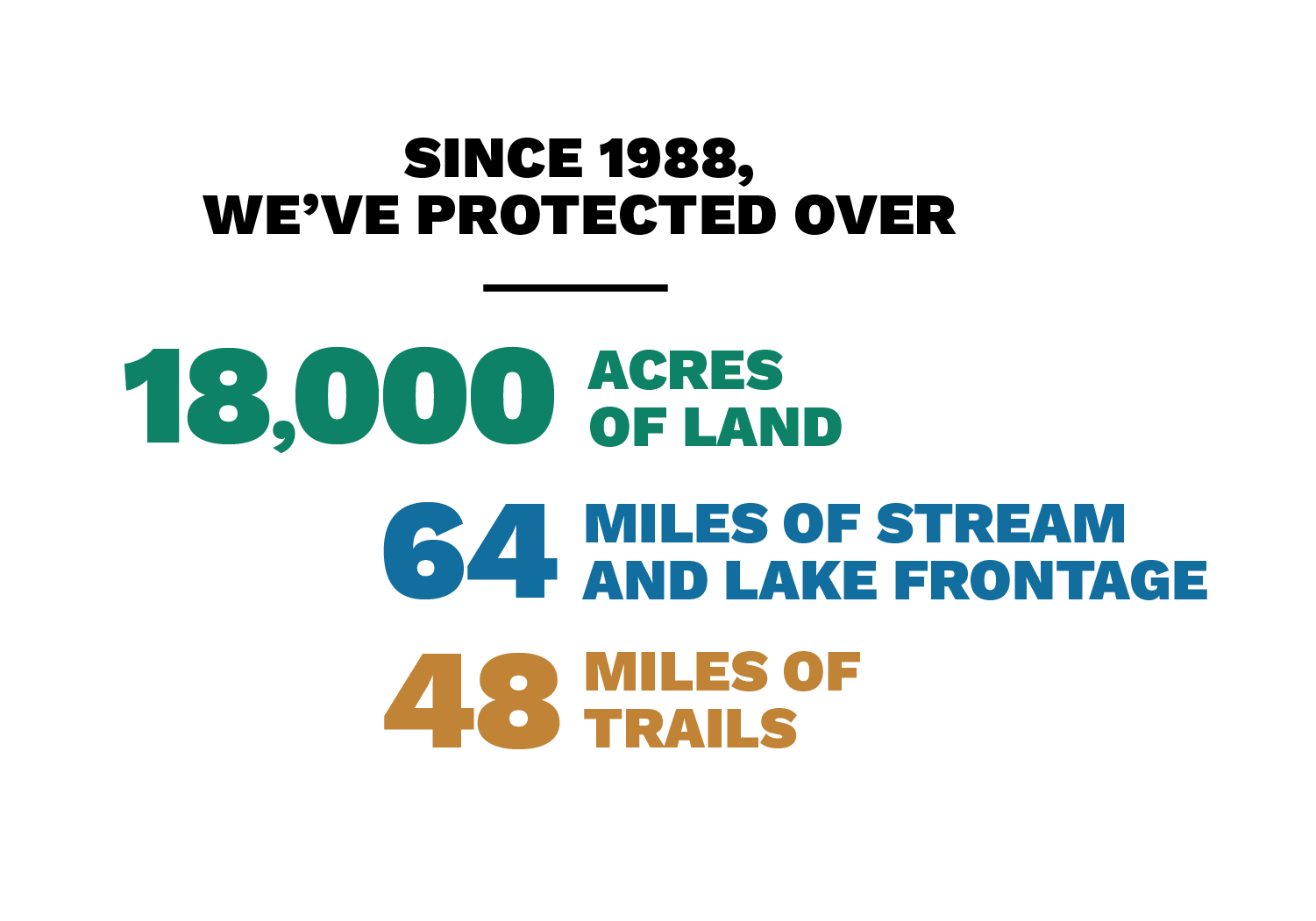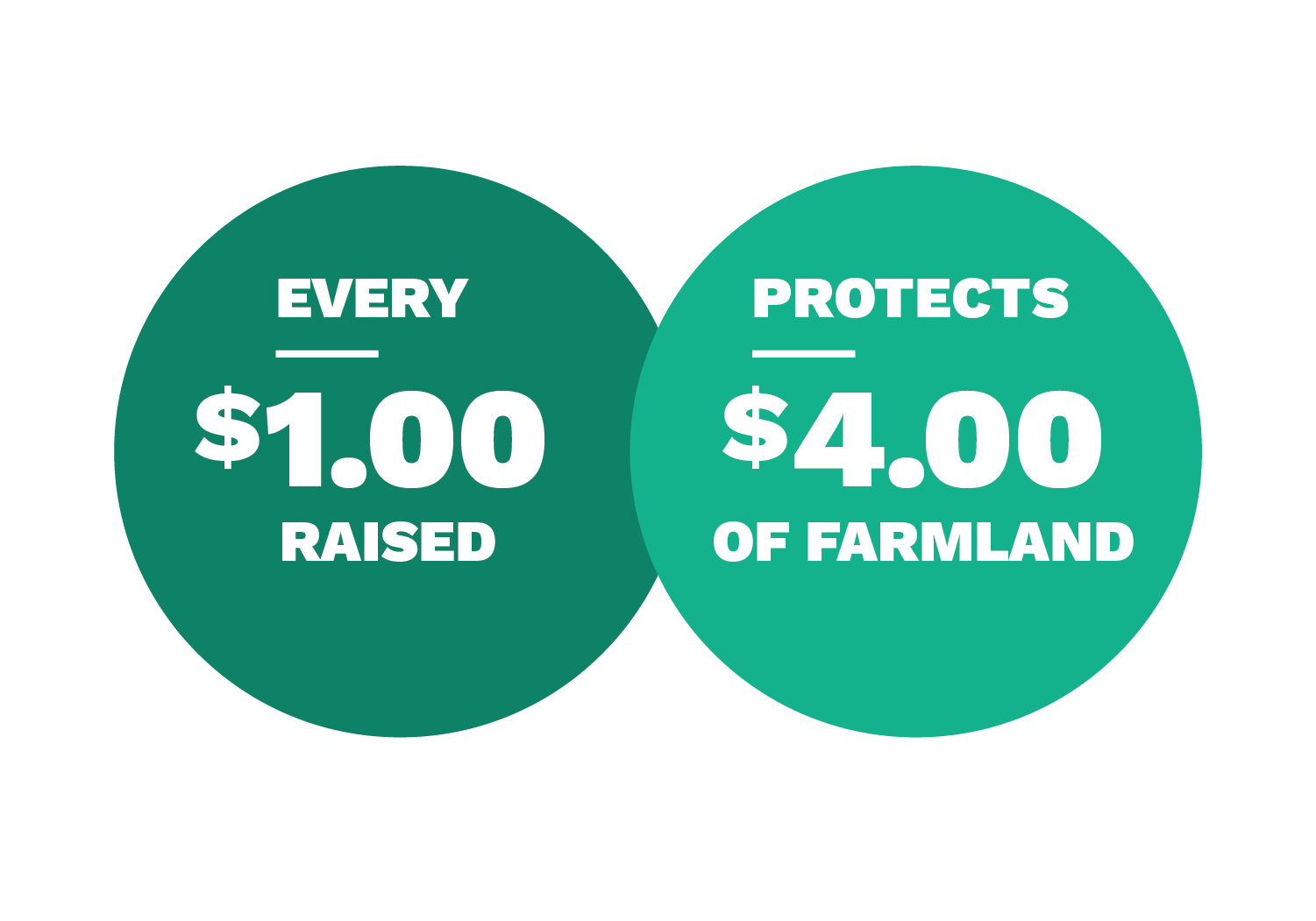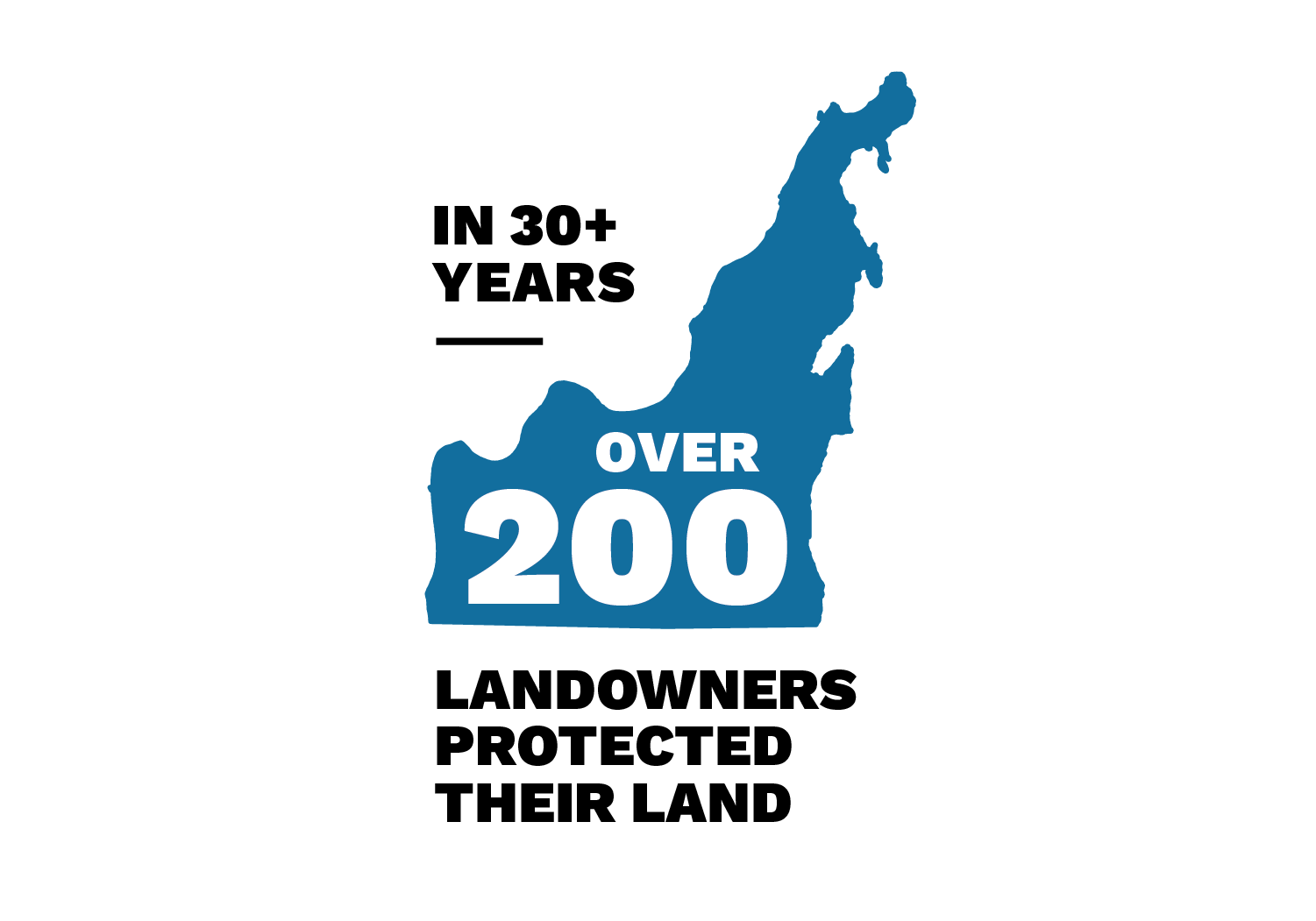Send and Emeott Families Protect Prime Fruit – Growing Lands on Center Highway
From our 2011 Fall Newsletter
In a world where optimism seems to be in short supply these days, it was heartening to sit down with fruit farmers Jeff and Nita Send and their partners, Scott and Penny Emeott. The Suttons Bay farmers had taken a break from apple picking on a steel-grey October day to talk about the future of farming in Leelanau, as well as the reasons why they are preserving some of their best fruit growing acreage for future farming generations. “We’re more hopeful now,” says Nita Send, sitting at her butcher block table in a kitchen decorated with cherry motif touches. “The industry is on an upswing.”
Through a purchase of development rights (PDR)*, the partners will permanently protect 145 acres they own jointly along Center Highway. The land is in the heart of an agricultural corridor where approximately 800 acres of neighboring farms have already been protected by PDR and nearly 500 more acres are currently enrolled in our FarmAbility Program. Under PDR programs, farmers are paid a portion of the difference between what their land would be worth as a residential subdivision and its underlying value for farming. (see below)
The partners say protecting this particular 145 acres was “a no brainer.” “The height, the way it rolls,” explains Jeff, “Well, let’s just say if there aren’t cherries there, there are no cherries to be had. It always produces, no matter what. Besides that, there are enough damned subdivisions already.”
This sort of love for the land and respect for its global importance is part of what defines the Send-Emeott partnership. “There’s no other place in the U.S. that is so perfect for growing tart cherries,” says Nita. “If the country loses that, it’s gone forever. This is the perfect spot and that’s why we’re protecting it so that the land will always be available.” As Nita talks, Scott and Penny nod their heads in agreement.
All four were born and raised in either Suttons Bay or Lake Leelanau. The Emeotts are younger by about 15 years. They got to know each other when Scott took a job working for Jeff just out of high school. He drove a HiLo at the Send’s receiving station—a place where fruit is weighed and graded and then sent on to a processor. A year or so later, Scott purchased his grandfather’s farm.
He was just 19, and looked to Jeff for advice and respected his years of experience. Jeff, in turn, liked the way Scott came up with new ideas. “There was a lot of difference in age,” says Scott. “But that’s a good thing because we each bring something different to the table.”
As it turns out, the mutual support was especially needed that first year that Scott owned his farm. Cherry prices hit an all time low, yielding just 5 cents a pound. He recalls lying awake at night, “wondering what in the heck have I done,” he says. “Thank God I had another job.” His family owned Morey’s Grocery in Suttons Bay, where he did everything from run the cash register to stock shelves.
Those were some of the most challenging times for Leelanau fruit farmers. “There were years when you wondered how you would make it; years when you were awake for every storm, knowing that if the crop went bad there would be no way to pay the bills,” says Nita.
Within a few years, Scott and the Sends had formed a partnership and were buying and leasing property together. One day, they met with a farmer named Morio to talk about buying his farm—whose daughter happened to be Penny. She had just graduated with a degree in education, and would soon take a job at Suttons Bay Elementary. Scott and Penny were married soon after Jeff and Scott bought her father’s farm. “I guess I did that totally backwards,” says Scott. “You’re supposed to marry the farmer’s daughter, and then get the farm.”
Two decades of sharing equipment, work crews and know-how has helped the Sends & Emeotts weather the storms. Together they farm about 1,100 acres at 22 different locales. “It makes sense to spread the costs of equipment over many acres,” says Scott. “It’s foolish to buy a $15,000 piece of equipment and use it only on just a few acres.”
Both couples say that the funds they receive from the purchase of development rights will help them to pay down debt, invest in the farm, and make it possible for them to pass the land on to the next generation. “The passion for us is to preserve farming acreage—we don’t really want to see the land used for anything else,” says Nita. “It’s the right thing to do while also being a really smart business decision.” All four are optimistic about the future of farming in Leelanau.
“The marketing initiatives have created more awareness and a demand for the product,” says Penny. Dried cherries are continuing to gain in popularity, and cherry concentrate is even hotter because it is being touted for its “muscle recovery” benefits. “Supply and demand of cherries are close to being in balance which will help too,” adds Jeff. “We no longer have a big backlog of product, which will help future prices.”
The partners see conservation as just another tool in the toolbox—one that is becoming more and more appealing to the farm community as a whole. “The majority of farmers don’t want to see their land turned into housing,” says Scott. “But if nobody in the family wanted to take over, their options were limited. There was no way farmers’ kids could afford to buy the farm at development prices.” What a purchase of development rights does is to get the land down to a price where a family member or another farmer could afford to buy it.
“Any tool that you can find to help you sustain the farm we are going to look at,” says Nita. “But when it comes right down to it, farming has never been about the money for us. It’s not a job, it’s a way of life because your whole family life revolves around the farm. We love it because it’s directly connected to nature and to creation.”
“Preserving farmland is a pretty smart business decision, and experienced growers like the Sends and Emeotts prove the point,” says Tom Nelson, the Conservancy’s Director of Farm Programs. “In fact, we’ve been working with these folks to try to protect this farm ever since they supported the farmland preservation ballot effort in 2006. That initiative wasn’t successful, but this project with the Sends and Emeotts will be—and that speaks volumes about their commitment to the future of farming in Leelanau.”
*A federal program—the Farm and Ranchland Protection Program (FRPP)– contributes up to 50% of this value, and the Conservancy must raise a 25% match. The farm family is also required to forego 25% or more of the acreage’s cash value—this is considered a charitable donation for which there are federal tax incentives as well. Thereafter, the legal right to develop the land is extinguished forever, keeping the land available for farming for future generations. The land stays in private hands, remains on the tax rolls and no public access is required.



